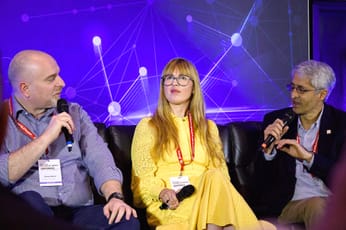data

Apple kills Google's internal apps, too Paid Members Public
Google feels Apple's banhammer a day after Facebook fell before it…
Journalists: update your iOS devices now Paid Members Public
Today’s security update for Apple’s iOS devices [http://www.nytimes.com/2016/08/26/technology/apple-software-vulnerability-ios-patch.html] is a serious one: > One of the world’s most evasive digital arms dealers is believed to have been taking advantage of three security vulnerabilities in popular Apple products in
This guy analysed what data Buzzfeed is collecting about you - and you won't believe what he found… Paid Members Public
Dan Barker’s been poking at the tracking javascript on Buzzfeed, and found some very interesting data being captured from quizzes [http://barker.co.uk/buzzfeediswatching]: > In other words, if I had access to the BuzzFeed Google Analytics data, I could query data for people who got to the
DJ Patil: the internet of things will be our superpowers Paid Members Public
[https://i0.wp.com/www.onemanandhisblog.com/content/images/2012/12/DJ-Patil.jpg] Dr. DJ Patil, Data Scientist in Residence, Greylock Partners Our world is becoming an instrumented lifecycle. We are becoming the internet of things by surrounding ourselves with sensors, and using that data to get better insights about
Aral on identity, privacy and app.net Paid Members Public
Liveblog of Aral’s talk at Hacks/Hackers Brighton: * * ## [Aral Balkan](http://www.breakingthin.gs)He’s going to talk to us about identity and privacy. He’s an experience designer. He makes things for people – mainly virtual products, his focus is on the human side of things. [https://i0.
Google's trust deficit Paid Members Public
Mark Wilson, summing up his thoughts [http://www.markwilson.co.uk/blog/2012/07/the-annotated-world-the-future-of-geospatial-technology-edparsons-at-digitalsurrey.htm?utm_source=feedburner&utm_medium=feed&utm_campaign=Feed%3A+marksweblog+%28markwilson.it%29] on last week’s Digital Surrey Google Maps talk [http://www.onemanandhisblog.com/archives/2012/07/digital_surry_







